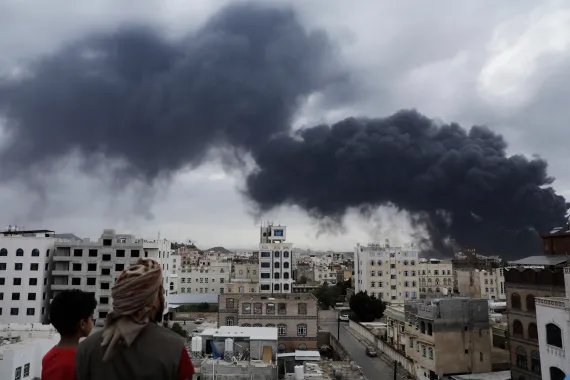In a surprising escalation that has grabbed global headlines, Israel has carried out airstrikes in Yemen, a move that signals a potential widening of the conflict in the Middle East. While the region has long been entangled in proxy wars and political rivalries, this latest development raises serious concerns about broader regional stability.
The Background: Tensions Across the Region
The Middle East has been on edge since the October 2023 Hamas-Israel war. That conflict not only reignited hostilities in Gaza but also stirred unrest across Lebanon, Syria, Iraq, and now Yemen. The Houthi rebels, who control large parts of northern Yemen, have declared support for Hamas and launched drone and missile attacks against Israeli targets and Red Sea shipping routes in recent months.
While the U.S. and U.K. have previously struck Houthi targets in retaliation for Red Sea disruptions, Israel had, until now, refrained from direct action in Yemen.
What We Know About the Strikes
According to early reports from multiple international media outlets, Israeli fighter jets targeted sites in northern Yemen believed to be associated with Houthi weapons storage and drone-launching facilities. The strikes reportedly occurred late at night, and while the full extent of damage is still unclear, local sources suggest significant infrastructure has been hit.
Israeli officials have not publicly confirmed the operation, but anonymous military sources suggest it was a preemptive strike aimed at neutralizing a growing threat.
Why Yemen?
The Houthis have become an increasingly active player in the regional conflict, particularly through their attacks on commercial ships in the Red Sea. Israel views these attacks not only as economic threats but also as part of Iran’s strategy to surround Israel with hostile forces. The Houthis are widely believed to be backed by Iran, which also supports Hezbollah in Lebanon and various militant factions in Syria and Iraq.
By striking Yemen, Israel may be sending a strong message: any threat, no matter how distant, will be met with force.
Global Reactions and Risk of Escalation
The international community has reacted with caution. The U.S. has reaffirmed Israel’s right to self-defense but urged restraint to avoid a broader war. The UN has expressed deep concern, warning that escalation in Yemen could further exacerbate the humanitarian crisis in a country already devastated by years of conflict and famine.
Middle Eastern powers like Saudi Arabia and the UAE are watching closely. Both have complicated relationships with the Houthis and are wary of a renewed regional conflict that could draw in multiple nations.
What’s Next?
With conflict lines now stretching from Gaza to Yemen, the risk of a multi-front war is no longer hypothetical. Israel’s actions suggest a more aggressive doctrine: rather than waiting for threats to materialize, it may now take the fight directly to enemy strongholds — even across borders.
However, this approach carries risks. Yemen is a fragile and war-torn state, and civilian casualties or missteps could spark international condemnation and inflame anti-Israel sentiment across the Arab world.
Final Thoughts
The Israeli strikes in Yemen mark a dangerous turning point. As regional alliances shift and proxy battles intensify, the possibility of a broader Middle Eastern conflict looms. It’s a time for diplomacy, clarity, and international cooperation — but also a reminder that in this volatile region, even distant sparks can ignite large fires.






No comments:
Post a Comment